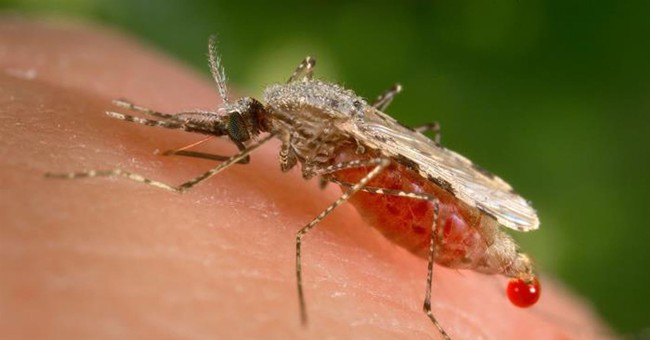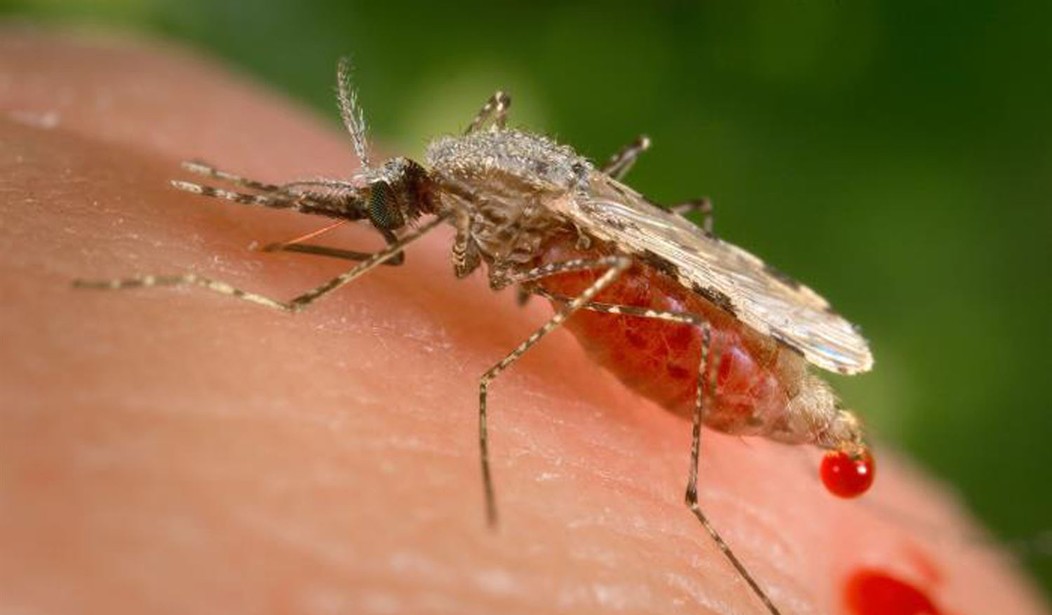
If you’re from a place similar to the land I call home, you’re sick of the bloodsuckers.
I don’t mean left-wing legislators; I’m talking about mosquitoes.
But Florida may soon enjoy a change that would make the outdoors less itchy — the Sunshine state might see far fewer bugs with a taste for your body’s red state.
That’s because of — brace yourself — some severe insect sexism.
Mic.com lays it out:
[T]he Environmental Protection Agency has approved a new and controversial field test aimed at curbing [the mosquito] population. The plan is to release genetically modified [males] that over time will lead to fewer regular mosquitoes.
And fewer mosquitoes in general.
Here’s how it’s works: When UK-based Oxitec scientists’ engineered Romeos mate with normal juice-jonesin’ Juliets, the genetic alteration essentially causes all female offspring to die — thus controlling the hemoglobin-hogging population.
In case you didn’t know, it’s only the females who drink blood:
Males, on the other hand, present no real threat to humans…
Not according to a lot of people in politics.
Anyway, trials for the eugenics effort are set to begin later this year in Florida’s Monroe County — location of the Florida Keys.
They’ve been approved for home-to-Houston Harris County, Texas, too.
To be clear, at the base of it all lie greater aspirations than making the outside world less annoying:
The test runs will target mosquito species that are known for their role in spreading dangerous diseases including Zika virus and dengue fever to humans. A study published in 2012 warned that as many as four billion people globally are at risk of contracting dengue fever, which can cause flu-like illness and even result in death for some, according to the World Health Organization. In the US alone, as many as 40 million people per year contract dengue fever, and an estimated 22,000 die from it, according to the Centers for Disease Control and Prevention. Zika virus often causes no symptoms in people who contract it, but it can cause serious complications during pregnancy and lead to birth defects. It can also cause Guillain-Barré syndrome, a rare sickness that causes a person’s immune system to damage nerve cells, leading to weakened muscles and even paralysis. As many as 40,000 people in the US and its territories are infected with Zika each year.
As noted by ScienceMag.org, Oxitec claims an experiment like the Florida one — during which surviving males continue to pass along the gene — reduced the mosquito population by as much as 96% in an area of Brazil.
Amid America’s havens of humidity, can you imagine that?
While other groups claim the effect was only moderate, as stated by ScienceMag, it’s generally recognized that “the overall population of disease-spreading insects” was reduced.
Nonetheless, not everyone’s keen on scientists genetically infiltrating the ecosystem.
As per Healthline.com, in 2013, Key West resident and anti-GM mosquito activist Mila de Mier fought an eventually-abandoned plan to supply the area with modified pests. At the time, she asked, “Why would we not expect GM…insects, especially those that bite humans, to have similar unintended negative consequences [to GM crops]? Will the more virulent Asian tiger mosquito that also carries dengue fill the void left by reductions in A. aegypti? Will the dengue virus mutate (think antibiotic resistant MRSA) and become even more dangerous? There are more questions than answers, and we need more testing to be done.”
However:
Government officials and some environmentalists say that the GM critters are cheaper and safer than widespread, indiscriminate spraying of pesticides in urban communities, but the public remains divided. Meanwhile, Oxitec continues to perfect and deploy its GMOs.
Mila’s Say-No-to-Modified-Mosquitoes petition garnered more than 230,000 signatures online.
And in September, an independent research group published a paper in Scientific Reports criticizing the program.
ScienceMag sums it up:
[T]he paper’s suggestion that [the Brazil tests’] genetic mixing could have made the mosquito population “more robust” — more resistant to insecticides, for example, or more likely to transmit disease — has triggered anti-GM news reports, a backlash from some scientists, and strong pushback from Oxitec.
“More robust” doesn’t sound too good.
But the tests look to be inevitable.
Should we be tampering with nature in this way? What are your environmental sensibilities? Let us all know in the Comments section.
-ALEX
See 3 more pieces from me:
Miracle of Science: Future Engineered Mosquitoes May Only Make Bugs That Don’t Suck
Find all my RedState work here.
And please follow Alex Parker on Twitter and Facebook.
Thank you for reading! Please sound off in the Comments section below.













Join the conversation as a VIP Member